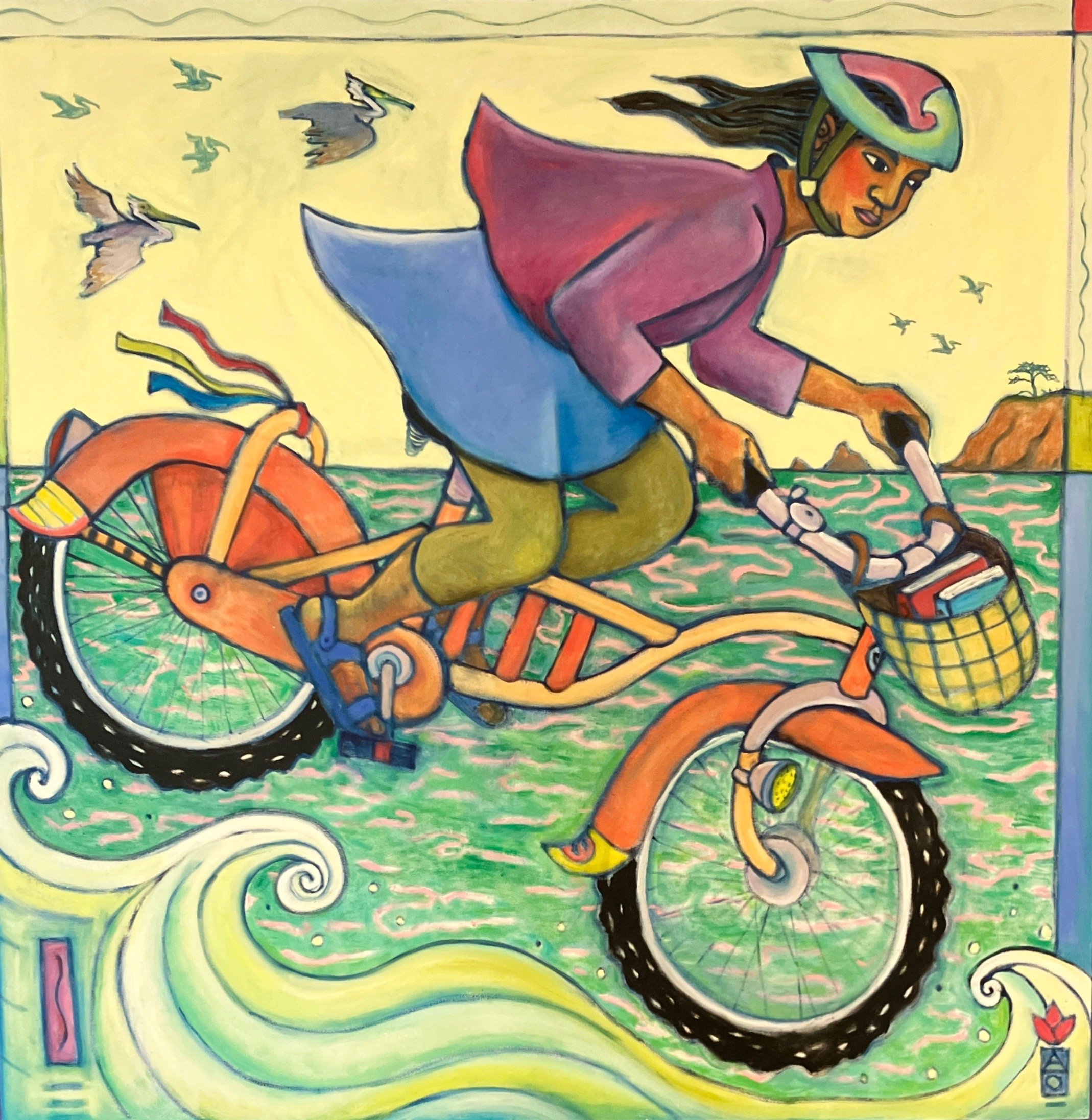from the ether
Anna Oneglia © 2023
On the Power of Poetry
A Sunday morning guilty pleasure: to retrieve my home-delivered copy of the Sunday New York Times from the driveway, listen for a minute to the early morning bird chatter before I head inside, hit the coffee maker, pour a bowl of cereal, and plop down at the kitchen table to sort the newspaper into its separate sections—or slices, as a friend deliciously calls them—to lose myself for a couple hours in its pages. Guilty because it’s likely more environmentally sound to forsake newsprint for an online version, which I’ve already done with great reluctance with the daily local news. Pleasure because that’s what reading is.
I start with the front page, reading, skimming, skipping, turning actual pages of analog text, ink upon paper, an ancient human practice, and how I found my father engaged every morning of my childhood—dressed in his robe, pajamaed legs crossed, with his own cup of coffee and probably a cigarette. I’ve got a pen. Sometimes I make notes in margins or snap a picture of some bit of quote that strikes my interest or seems resonant with something I’m writing or thinking about writing . . . which brings me to this morning’s Opinion slice and a column there by David Brooks entitled, “The Power of Art in a Political Age.”
Politics is Brooks’ lane, so I was curious to see what he’d have to say about mine. He makes a case for the arts—not just for poetry, but all forms—as a place, a place to “flee to,” a “deeper realm,” where one can find solace, inspiration, and feel you’ve entered an “alternative world” where you will “lose yourself.” While Brooks doesn’t plainly state this the way I have, art as a place, his figurative language definitely leans into the concept, one I do find very intriguing. Which is why I actually snipped this particular article out of the paper. Even the words you’re reading now are “from the Ether,” another imagined, digitized, but somehow real place from which I write to you.
But how his article informs this column, though tangential to Brooks’ piece, reflects how my mind works, ping-ponging around what I’m reading in that, yes, “deeper realm” of the imagination. What triggered my thoughts is this comment, beauty here conflated with art.
First, beauty impels us to pay a certain kind of attention. It startles
you and prompts you to cast off the self-centered tendency to always
be imposing your opinion on things.
Imposing opinion. Exactly. But while Brooks wants the in-our-case-reader to cast off this tendency, I think that to create beauty, to create art, the poet herself must also resist imposing opinion. Instead, a good poem exposes something of value, discovers something. The poet works to peel back layers, to reveal something formerly hidden, hidden even to the poet. Such a work invites the reader to participate, draws the reader into its quest. Poetry as art exposes the unknown vs. imposes a known, often a tired known. (Sounds like show vs tell, doesn’t it?)
An essay tries to tell you something. Maybe convince you. Yes, this one, too. A poem, on the other hand, a good poem, asks you something, exposes a way to that place Brooks imagines, that place where even for a moment, we might lose ourselves in time and space.
In our Spring 2022 issue of DMQ Review, we offer you pages of images and poems we think will do just that. We hope you will pay a certain kind of attention, as Brooks suggests, and find yourself startled and awakened and comforted and challenged and surprised and known. Transported. All of the ways art has of moving us.
Many thanks to each of the contributors to this issue, for what they’ve exposed, and especially to featured artist Anna Oneglia for sharing her visual art with us. Her images open the way to a different seeing and display a great place of imagination.
And for you writers of prose poems, submissions will open April 1, but for just one month.
Stay tuned. Stay safe.
from the Ether,
Sally Ashton
Editor-in-Chief
Table of contents

